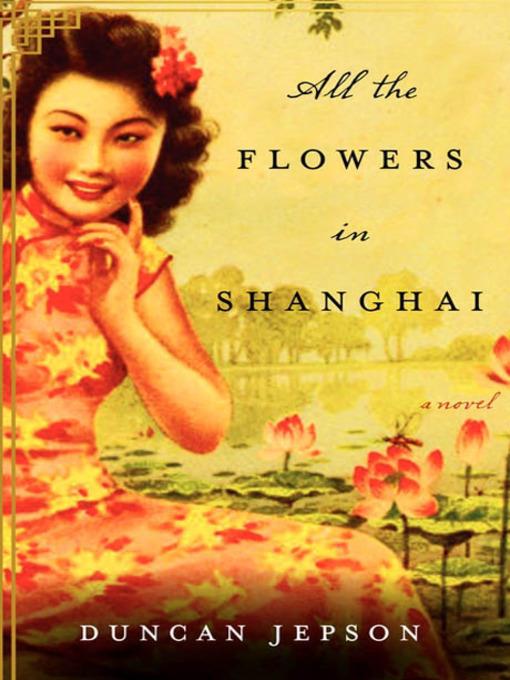
All the Flowers in Shanghai
کتاب های مرتبط
- اطلاعات
- نقد و بررسی
- دیدگاه کاربران
نقد و بررسی

October 3, 2011
Jepson, a film producer and founding editor of Asia Literary Review, makes his fiction debut with a saga set in 1930s Shanghai. Heroine Xiao Feng must take her dead sister’s place in an arranged marriage to Xiong Fa, a son from the prosperous Sang family. After marrying, the mistreated, desperately unhappy Feng clings to memories from the days she spent in the garden with her grandfather and Bi, the seamstress’s son. Vowing not to bring a baby girl into the rigid, patriarchal world of the Sangs, Feng makes a life-altering decision after she bears her first child. When she realizes the power she wields in producing a male heir, she transforms herself into a wealthy, sophisticated, and ruthless First Wife. Unfortunately, the Japanese invasion of China weakens ancient social structures, and the world as the powerful Sang family has known it unravels. Despite the riveting story line, the novel suffers from awkward syntax, and its treatment of time (decades and wars are dismissed in single pages) hints at more familiarity with quickly moving screenplays than full-length fiction.

November 1, 2011
For the second daughter of an ambitious Chinese mother, it's suffering and regret all the way, from the class-divided 1930s to the miseries of the Cultural Revolution. Simple but strong on detail and emotional intensity, this Hong Kong-based Eurasian author's debut considers female roles and maternal bonds against the background of Chinese tradition, a recipe for disaster in the case of Xiao Feng, second daughter in a middle-class household. Because Xiao Feng's sophisticated sister is expected to make a good marriage, she is left free to study flowers with her grandfather and form an idealistic attachment to a simple fisherman from the country. But when her sister dies, Xiao Feng must step into her shoes and become less a bride, more a prisoner in the opulent Sang mansion where marital sex seems closer to rape than making love. Falling pregnant and giving birth to a daughter, Xiao Feng is consumed with hatred of her circumstances and, swearing to be the last girl of her family, she gives the child away, an act that will haunt her future. Now she changes, becomes powerful and controlling, gives her husband a son but is swallowed up by history, which inflicts undreamed-of additional sorrow, alleviated only by late glimpses of redemption and restoration. An unremittingly bleak story, delivered with some passion.
(COPYRIGHT (2011) KIRKUS REVIEWS/NIELSEN BUSINESS MEDIA, INC. ALL RIGHTS RESERVED.)

December 1, 2011
Growing up outside of Shanghai, 17-year-old Feng is content in her role as the younger sister in a middle-class family. She is blissfully ignorant of the social expectations placed on her older sister and instead spends her time outside with her grandfather and a seamstress's son in the lush family gardens. But her pleasant life ends when she is abruptly forced into an arranged marriage with the son of a wealthy family. Feng is unaware of the expected emotional and physical duties of a wife, and the pressure of providing a male heir creates such distress that Feng is unable to cope and makes potentially damning decisions. VERDICT Although Jepson's debut novel is set in 1930s Shanghai, the author spends little time detailing historical events and place descriptions. Instead, he focuses largely on Feng's personal turmoil as she ponders life-altering choices. He does a solid job of voicing a female character, but some may find Feng unlikable because of her lack of emotional growth and inability to find happiness. Still, this would be a good choice for readers who enjoy Lisa See's China-themed historical novels.--Madeline Solien, Deerfield P.L., IL
Copyright 2011 Library Journal, LLC Used with permission.

December 1, 2011
This novel chronicles the transformation of a woman in mid-twentieth-century China and her country's subsequent upheaval. At 17, Feng falls victim to custom: a second daughter who enjoys attending school and spending time with her grandfather, she is forced into becoming a replacement bride when her older sister dies just before marrying into a prominent Shanghai family. Untutored in the ways of the world, with her servant as her only source of comfort and advice, she must deal with a surly, powerful father-in-law and his backbiting first and second wives. Under pressure to provide a male heir, Feng gives away her newborn daughter, an act engendering guilt that reverberates throughout her life. Jepson, a Eurasian film director and producer, evokes time and place well as he describes the life of privilege that Feng comes to take for granted only to have her life veer dramatically and be overtaken by the Great Leap Forward. The success of this debut novel, however, is likely to rest on how well narrator Feng, with her shifts in personality, resonates with the reader.(Reprinted with permission of Booklist, copyright 2011, American Library Association.)

























دیدگاه کاربران